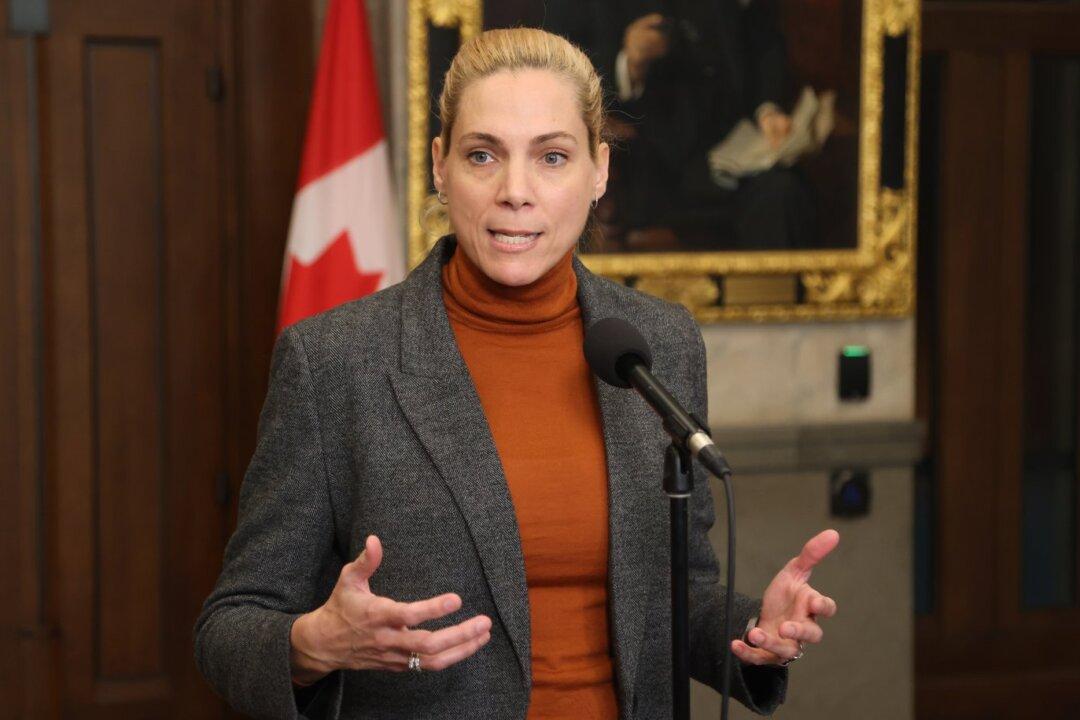| Several individuals in the UK have been sentenced to prison for posts they made online as authorities crack down on recent protests that led to race-motivated crimes. The laws that were used for the arrests in the UK compare as strikingly similar to Canadian laws dealing with online speech, including both existing legislation and the proposed Bill C-63. Why It Matters: Bill C-63, which has received second reading, significantly changes the laws governing online content in Canada. |
“It’s alarming that the bill [C-63] enables individuals to anonymously file complaints with the Canadian Human Rights Commission against those they deem to be posting hate speech. If found guilty, the Canadian Human Rights Tribunal can impose fines of up to $70,000 cad and issue takedown orders for the content in question.
“If the courts believe you are likely to commit a ‘hate crime’ or disseminate ‘hate propaganda’ (not defined), you can be placed under house arrest and your ability to communicate with others restricted.” revolver.news
Via eurocanadians.ca/ The People’s Choice by Sean Adl-Tabatabai: The Trudeau government has introduced a potentially Orwellian new law called the Online Harms Bill C-63, which will give police the power to retroactively search the Internet for ‘hate speech’ violations and arrest offenders, even if the offence occurred before the law existed. This new bill is aimed at safeguarding the masses from so-called “hate speech”.
Revolver.news reports: The real shocker in this bill is the alarming retroactive aspect.
Essentially, whatever you’ve said in the past can now be weaponized against you by today’s draconian standards. Historian Dr. Muriel Blaive has weighed in on this draconian law, labeling it outright “mad.” She points out how it literally spits in the face of all Western legal traditions, especially the one about only being punished if you infringed on a law that was valid at the time of committing a crime.

Dr. Mureil Blaive-Historian & Researcher Institute for the Study of Totalitarian Regimes.
The Canadian law proposal is outright mad. It is retroactive, which goes against all our Western legal tradition, according to which you can be punished only if you infringed a law that was valid at the time when you committed a crime: “And it isn’t just stuff you’ve posted after the new law comes into force you can get into trouble for – oh, no – but anything you’ve posted, ever, dating back to the dawn of the internet. In other words, it’s a gold-embossed invitation to offence archaeologists to do their worst, with the prospect of a $20,000 cad reward if they hit paydirt. The only way to protect yourself is to go through all your social media accounts and painstakingly delete anything remotely controversial you’ve ever said.”
“Although, that won’t protect you from another clause in the bill – and this is where it trips over into as yet unimagined dystopian territory. If the courts believe you are likely to commit a ‘hate crime’ or disseminate ‘hate propaganda’ (not defined), you can be placed under house arrest and your ability to communicate with others restricted. That is, a court can force you to wear an ankle bracelet, prevent you using any of your communication devices and then instruct you not to leave the house. If the court believes there’s a risk you may get drunk or high and start tweeting under the influence – although how is unclear, given you can’t use your phone or a PC – it can order you to submit regular urine samples to the authorities. Anyone who refuses to comply with these diktats can be sent to prison.”
By externalizing the defense of free speech to the right and extreme right and by endorsing repression, the liberal left is playing a very dangerous game here. For those of us who are NOT on the right and extreme right, this is rather disheartening… The left is actually shooting itself in the foot and will come back whining, ‘amazed’ that ordinary people are so ‘ungrateful.’ Indeed it seems to have forgotten that the rule of law implies to solve disagreements in the voting booth rather than by silencing those who disagree with us. How can it hope to get the support of the public for this insanity?
An online X user recently shared that his wife wrote a letter to every Canadian MP concerning this chilling bill, and only one MP responded. He posted MP Rachel Thomas’s reply, which many are now calling one of the most insightful and well-crafted summaries on this alarming issue.
My wife wrote to all Canadian MP’s about our opposition to the Online Harms Bill C-63. MP Rachael Thomas of Lethbridge is the only one who wrote back … It is the best written summary of issues I have seen yet. Long, but here it is…
“Thank you for writing to me regarding Bill C-63, the Liberal’s latest rendition of their online harms legislation.
While the federal government has touted this bill as an initiative to protect children, it does little to accomplish this noble cause, and a great deal to inhibit freedom of speech. Permit me to outline the bill in more detail.
There are four key parts to the bill: Part 1 creates the Online Harms Act; Part 2 amends the Criminal Code; Part 3 amends the Canadian Human Rights Act, and Part 4 amends An Act respecting the mandatory reporting of Internet child pornography by persons who provide an Internet service. I will focus on the first three parts of the bill in the rest of the letter.
Part 1: The bureaucratic arm will consist of three entities: the Digital Safety Commission, Digital Safety Ombudsperson, and Digital Safety Office. These new offices are made up almost entirely of Cabinet appointees and are given powers to receive and investigate complaints concerning harmful content, collect data, and develop more regulations. The Chairperson of the Digital Safety Commission would be voted on by Parliament. The Digital Safety Commission may investigate complaints and hold hearings regarding violations of the Act. The commission may act with the power of the federal court and may authorize any person to investigate compliance and non-compliance.
Penalties for violating an order of the commission or hindering anyone they authorize depend on whether a regulated service or individual commits the violation. The maximum penalty for a violation is not more than 8% of the gross global revenue of the person that is believed to have committed the violation or $25 million, whichever is greater. Cabinet and the Digital Safety Commission can make further regulations concerning the Commission’s powers and financial enforcement (fines).
Setting up a bureaucratic arm will do little-to-nothing to protect children. The last thing our system can handle right now is a stack of new complaints. It can’t even handle the existing ones.
Part 2: Bill C-63 creates a new hate crime offence that will make any offence under the Criminal Code, or any Act of Parliament, an indictable offence and punishable to life in prison if the offence was motivated by hatred. A definition of ‘hatred’ is introduced in s. 319(7), which is defined to mean ‘the emotion that involves detestation or vilification and that is stronger than disdain or dislike.’ s. 319 (8) includes the clarification that the communication of a statement does not incite or promote hatred, for the purposes of this section, solely because it discredits, humiliates, hurts or offends.
Furthermore, the bill increases the punishment for an offence in s. 318 (1), advocating genocide, to imprisonment for life. The current punishment is up to 5 years. The bill also increases the punishments for offences in s. 319 (public incitement of hatred, wilful promotion of hatred, wilful promotion of antisemitism) from up to 2 years to not more than 5 years.
Alarmingly, a peace bond is created for ‘fear of hate propaganda offence or hate crime.’ This will allow a person to seek a court-ordered peace bond if they reasonably fear that someone will commit a hate propaganda offence or hate crime against them in the future. If you’ve watched the movie “Minority Report” you know how scary this is.
Part 3: The bill reinstates Section 13 of the Canadian Human Rights Act, which empowers officials at the Canadian Human Rights Commission and Canadian Human Rights Tribunal to make subjective determinations as to what forms of expression constitute hate speech, and they may also decide on remedies including fines. This will allow any individual or group in Canada to file complaints with the Canadian Human Rights Commission against users who post ‘hate speech’ online, with an accused facing fines of up to $50,000.
The legislation defines hate speech as content that is “likely to foment detestation or vilification of an individual or group of individuals on the basis of such a prohibited ground.” In other words, the content doesn’t necessarily have to directly express vilification; it only needs to be assessed as “likely to” vilify someone by a human rights tribunal. Section 13 is a punitive regime that lacks procedural safeguards and rights of the accused that exist in criminal law. Truth is no defence, and the standard of proof that will apply to Section 13 is “balance of probabilities,” not “beyond reasonable doubt,” as exists in a criminal case.
As you have rightly pointed out, Parts 2 and 3 of this bill are a direct attack on freedom of speech and will have a significant chilling effect as people fear the possibility of house arrest or life in prison. Margaret Atwood has gone so far as to say that C-63 invites the possibility of revenge accusations and the risk of “thoughtcrime.”
Furthermore, its alarming that the bill enables individuals to anonymously file complaints with the Canadian Human Rights Commission against those they deem to be posting hate speech. If found guilty, the Canadian Human Rights Tribunal can impose fines of up to $70,000 and issue takedown orders for the content in question. Additionally, the tribunal is granted the authority to shield the identities of complainants and prohibit defendants from disclosing this information if uncovered. In essence, accusers of hate speech will have their identities safeguarded, while those accused face significant financial penalties.
Common-sense Conservatives believe that we should criminalize and enforce laws against sexually victimizing a child or revictimizing a survivor online, bullying a child online, inducing a child to harm themselves or inciting violence. Criminal bans on intimate content communicated without consent, including deepfakes, must be enforced and expanded. Conservatives believe that these serious acts should be criminalized, investigated by police, tried in court, and punished with jail, not pushed off to a new bureaucratic entity that does nothing to prevent crimes and provides no justice to victims. We will bring forward changes to the Criminal Code that will actually protect children without infringing on free speech.
Thank you again for writing to me, and please accept my best wishes.
Warmest regards,
Rachael Thomas
Member of Parliament for Lethbridge”



